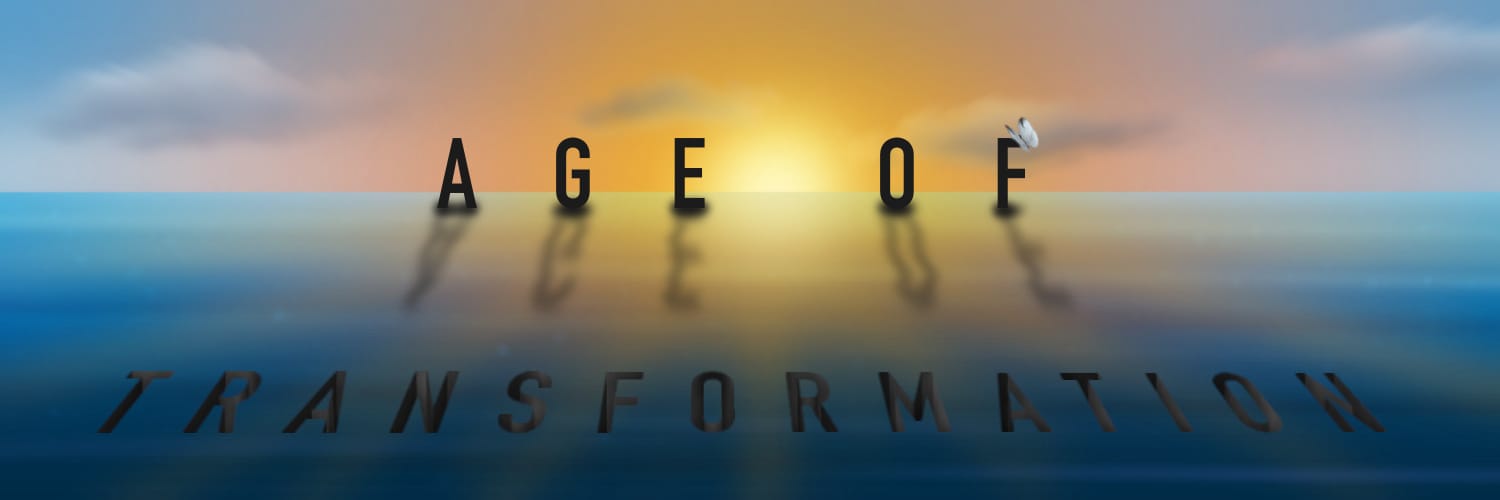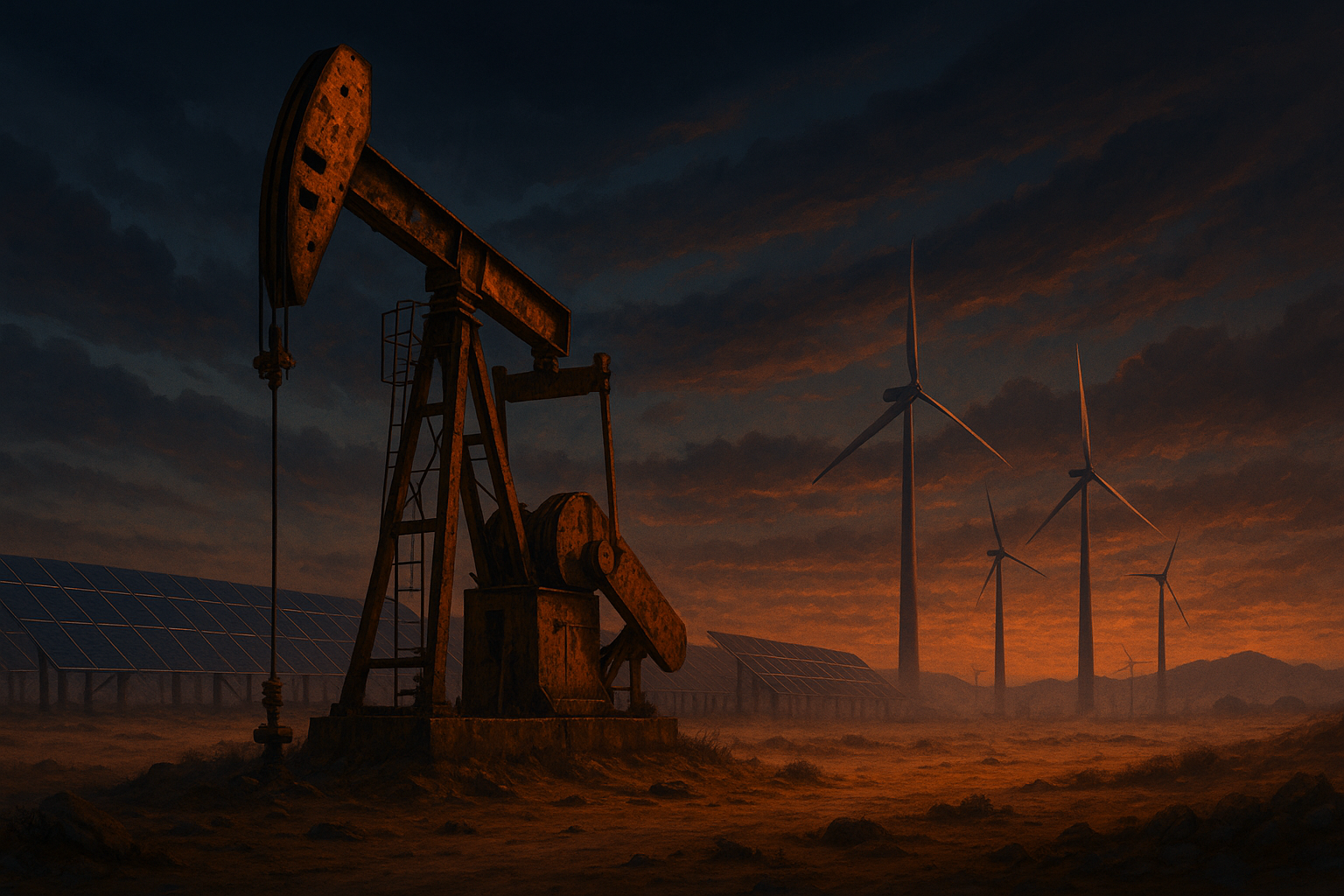It’s 2024. The opportunity for a new direction - a new beginning.
I'd like to start this New Year's post with a thank you - thank you for reading my work, thank you for your support, and thank you for your patience.
It was only last year, February, that I was able to launch the Age of Transformation (AoT) newsletter platform as my main new hub for writing, analysis, multimedia etc on systems thinking for the global phase-shift (shout out to Allan Stromfeldt Christensen, without whom this platform would not exist!).
AoT has now been operating for nearly a year. I’ve put out about 24 posts since launch, many of them deep dives and long reads, and we've grown the subscriber base from 0 to just under 3,000 people. That's without any sponsorship or financial support from anyone except those of you who've generously chosen to join as members.
It's been quite a journey getting here. In many ways, the turning point for me began with the global pandemic. I at first spent about 2-3 years ramping up investigative journalism as a senior correspondent for Byline Times. Whereas my previous reporting had been quite global in scope, I moved deeper into British politics in this period.
But increasingly I felt disillusioned about the impact of my work as a journalist. I wondered a lot about the results. One of the things that concerned me a lot was seeing a lot of my work contribute to polarised and often toxic polarised debates which I didn't sense any affinity with.
So when I was headhunted to join RethinkX, a technology forecasting think-tank based in London and San Francisco, I jumped at the opportunity.
I ended up spending those years juggling quite a bit of stuff: complex investigations at Byline; independent investigations via INSURGE intelligence; and think-tank work on systems science, creative comms, and policy/media outreach.
But ultimately I found myself being pulled away from the demands of frontline investigations and more toward more hands-on stuff that could actually directly change the world in constructive and powerful ways.
The end result was I finally made the jump into focusing full-time on systems change work.
The last few years has certainly been a huge series of learning curves. As a full-time reporter at Byline, I found myself breaking viral stories nearly every week. Life felt like a series of endless scandals. It still does, the difference being that when you’re reporting it from the coalface, you’re right there inhaling those toxic fumes.
The ‘light’ during such times often comes with glimpses of recognition. The New Yorker’s Jane Meyer, for instance - the world renowned American investigative journalist who has exposed Koch ‘dark money’ - retweeted my exclusive story revealing how Koch money funded the ‘Great Barrington Declaration’: the libertarian pseudoscientific conspiracy project demanding that the Covid19 virus be allowed to ‘let rip’ through society.
I’m proud to say she’s not the first heavy-hitter to offer this kind of recognition. Over the years, I’ve had my reporting amplified on Twitter by a number of celebrities, including for instance the Marvel actors Mark Ruffalo and Don Cheadle, Hollywood actor Elliot Page, Queen guitarist turned quantum physicist Brian May, British broadcaster Carol Vorderman, among others.
But looking back, I began to wonder. So bloody what? As the pandemic began to wane, I started to ask myself whether this was what I really wanted to do. I began to realise that I needed to do more than simply ‘call out’ power - I wanted to dedicate more of my time to finding ways to transform it.
During the two years I spent at RethinkX, I found I was privileged to experience what was effectively a hands-on ‘crash course’ in the intersection between technology disruptions and societal change, an area I had some familiarity with, but ultimately was a blindspot for most of my career.
My time at RethinkX - and I certainly don’t think the theories, frameworks and data there are perfect - helped provide the dot-joining I needed to help complete my two decades of research on earth and human systems.
Leaving RethinkX gave me the chance to throw myself into a non-stop year of real-world practice. While I’ve done a lot of consulting over the years for a wide range of organisations, companies and non-profits, this year was by the far the most productive and rewarding in terms of the opportunities to focus on systems change work.
I had first set up the System Shift Lab during the pandemic, desperate to create something that could respond positively to the escalating crises we were experiencing. This has now metamorphosed into my principal consulting vehicle. Through it, I’ve been able to train over a hundred grassroots leaders across Africa in systems thinking; I’ve contributed to the Club of Rome’s annual flagship 2022 report launched at the UN; I trained over a hundred civil servants, NGOs, and academics in Bangladesh on a systems approach to navigating the ‘global phase shift’; I designed and taught at a unique Duke University fellowship to train faith leaders in climate action; and perhaps most exciting of all, I’ve advised the governments of the Gambia, Malaysia, Nigeria, and beyond as a delegate to the UN COP28 climate summit.
In that capacity, I got the chance toward the end of 2023 - courtesy of the International Renewable Energy Agency (IRENA) - to present the core ingredients of my global phase shift framework to a heads of state plenary at the UN COP28 summit in Dubai. This was undoubtedly the biggest platform I’ve spoken at in my career.
I’m also planning two other big projects: I’m working on a scientific paper to flesh out and bring together my global phase shift framework on a new academic footing that integrates my work encompassing earth system and human system crises, with opportunities for transformation, societal change and technology. As this develops, I'll continue to update you about it here.
I’m also now working on a major new book which will synthesise everything I’ve learnt about systems in one place, and that will, in a way, make sense of everything.
So what’s next for AoT?
I still see myself laying the groundwork over the next year - going deeper into the systems science that backs up the idea of a ‘global phase shift’, while continuing to closely monitor global trends to keep readers informed on how this global systems lens can powerfully not only make sense of what’s happening, but help underpin far better decision-making.
I’m also now thinking about building on AoT to create new and more digestible learning materials and processes to disseminate whole systems awareness more widely, and indeed, systematically! All that of course takes time and resources in itself, but this year, this is what's at the forefront of my mind.
I'm looking forward to embarking on this journey with you.
Lots of love
Nafeez
If you appreciated this piece, you can keep this free newsletter alive and thriving by joining our community as a Supporter for the price of a cup of coffee a month.
Already have an account? Log In







